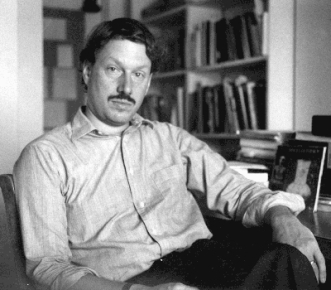The Shifting Condition of Art Discourse: an Interview with James Elkins (revista DISTURBIS, 2010)
James
Elkins is a prominent Professor of Art History, Theory and Criticism at the
School of Art Institute of Chicago, and a prolific author, with nineteen
published books and numerous works in progress. Furthermore, he is required
reading for both postgraduate and master courses in the arts, in the United
States, as well as in Europe. I would like to emphasize, from the outset, his
authentic meta-critical predisposition towards his own discipline as well as his
openness towards Non-Western modernities and postmodernities. A good example of
this is the most recent book edited by James Elkins, Art and Globalization
(Pennsylvania State Univ. Press, September 2010), an ambitious project of
rethinking contemporary art from the perspective of the complexity of artistic
production on a global scale. What follows is an edited transcript of an
interview that took place at SAIC (The School of Art Institute of Chicago) on
October 19, 2010.
Loredana Niculet: I would like to
begin by establishing three referential topics of the dominant debate in current
art theory: the crisis of art criticism, the hegemony of Western discourse and
the necessity of new fields for aesthetic research. In What happened to Art Criticism (2003), you
attracted the attention about the ubiquity and at the same time invisibility of
art criticism - “art criticism is massively produced and massively ignored”,
just as art itself, we could say. One of the main causes of this paradoxical
condition is the so-called “academization” of critical thought. Many of those
who have worked initially as art critics, started being interested in art
history and retired strategically towards the academic “monasteries”, against
the disproportionate protagonism of the museum – as global institution – and the
fast ascent of the curator – as new manager of the artworld. Have we sufficient
reasons to think – contrary to Spinoza who, in 1673, refused a philosophy
professor position in Heidelberg, because he believed that the academic system
would affected his freedom of thought – that today in the academic field there
are less restrictions on thought than in other fields, more exposed to the
cultural industry?
James Elkins: It’s a very interesting opening question, and
so is your whole perspective on the public, the private and the institutional
and non-institutional. On the one hand, I think that your interest is very broad
- so you’re talking about what would we call in English “public intellectuals” –
and on the other hand, I think your interest is also very specific – in your
dissertation, for example you’re talking about one small group of producers of
art. Your opening question is extremely broad, and yet your research is sharply
focused: an unusual combination.









So just to start on a very general note, I
think that there have been for a long time criticisms of both the effectiveness
and the autonomy of academic thinking. All you have to do is to think of
Habermas. Richard Rorty has also talked about this, and Noam Chomsky. My
favorite example is Stanley Fish who wrote a wonderful essay called “Boutique
Multiculturalism”, in which he says that no one is multicultural because we all
pick and choose values from other cultures that we can accommodate.
There is also a wonderful
critique by Martha Nussbaum of Judith Butler, saying essentially the same kind
of thing - that Judith Butler occupies the liberal academic position which
nevertheless stops short of action and has no effect on the public sphere. So I think you could easily claim that
Spinoza was right, if you want to take him as an emblem of this problem, but he
comes from a very different time and space. In a very general sense, you could
claim that this is true. But the difficulty that I would have with that is that
I think this only works in a very general way, it works only if the politics of
academia are considered as a single thing. Once you start talking about more
specific things like the artworld, scholarship in art theory and art history,
and so on, than I think that the public/private distinction starts working very
differently.
I’m
happy to try to go back and forth between these very general socio-political
questions of liberalism and neo-liberalism, and conservatism, on the one hand,
and the much more specific questions of your own work, on the other hand. But
I’m also concerned that we find bridges between these differently scaled
arguments.
It is
easy to say that academic art criticism has no effect on the outside world, as a
generalization. Obviously, there are counter-examples, but in general, academic
criticism has little effect. And within academic art criticism you can than
speak of several different kinds: the kind that you study - the art journal
October - is
ultra-academic; it’s at the heart of the heart of the academic discourse in
relation to the arts. And then outside of academia you have a number of people
who are writing more or less thoughtfully about art. You have a lot of
specifiable, semi-academic kinds of writings before you get all the way to the
newspaper journalists and the people who write catalogue essays—and even there,
I think, you would sometimes have a hard time arguing that politically motivated
writing has a measurable effect. So I would prefer to divide the dichotomy
academic/non-academic into several more specific sub-categories in order to make
progress on this question.
Read all the interview: http://www.disturbis.esteticauab.org/DisturbisII/Elkins.html
No hay comentarios:
Publicar un comentario